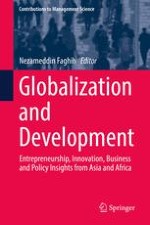2019 | OriginalPaper | Buchkapitel
Doing Business in the Arab World: Unlocking the Potential of Wasta
verfasst von : David Weir, Nabil Sultan, Sylvia van de Bunt
Erschienen in: Globalization and Development
Verlag: Springer International Publishing
Aktivieren Sie unsere intelligente Suche, um passende Fachinhalte oder Patente zu finden.
Wählen Sie Textabschnitte aus um mit Künstlicher Intelligenz passenden Patente zu finden. powered by
Markieren Sie Textabschnitte, um KI-gestützt weitere passende Inhalte zu finden. powered by
